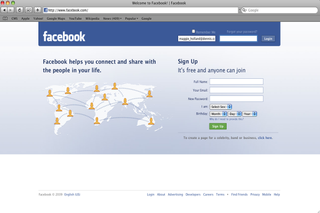Facebook's Zuckerberg says people don't expect web privacy
The founder of social networking giant Facebook says it is simply responding to a wider trend to put more of our lives online.

Facebook founder Mark Zuckerberg has cranked up the heat on the privacy debate embroiling the social networking site by claiming that people no longer expect their details to be private.
Speaking to consumer technology site TechCrunch, Zuckerberg argued that a lack of privacy online had become the norm, and said Facebook had flourished so dramatically because he had predicted as much when it was still being thought up.
"People have really gotten comfortable not only sharing more information and different kinds, but more openly and with more people," he told TechCrunch founder Michael Arrington. "That social norm is just something that has evolved over time."
Last month Facebook overhauled its privacy structures, requiring members to reclassify which information they wanted to remain private. However, in doing so the social networking site was widely criticised for moving away from a position of keeping their information private to one actively encouraging sharing.
Privacy groups claimed the changes were in breach of US consumer protection laws, and called on the Federal Trade Commission to order Facebook to overturn them. The FTC has since argued that it's not really its place to advise on privacy policies.
With 350 million users, Facebook is the world's biggest social networking service, and as such is as much responsible for shaping trends as to responding to them. However, Zuckerberg disagrees, saying that Facebook's softening stance on privacy is simply a response to wider trends.
"When I got started in my dorm room at Harvard, the question a lot of people asked was: 'why would I want to put any information on the internet at all? Why would I want to have a website?'
Get the ITPro. daily newsletter
Receive our latest news, industry updates, featured resources and more. Sign up today to receive our FREE report on AI cyber crime & security - newly updated for 2024.
"In the last 5 or 6 years, blogging has taken off in a huge way, and just all these different services that have people sharing all this information," he said.
Facebook was founded in 2004 as a closed network for US college students, and started to gain true global appeal three years later as its massive potential began to be unlocked.
Most Popular





